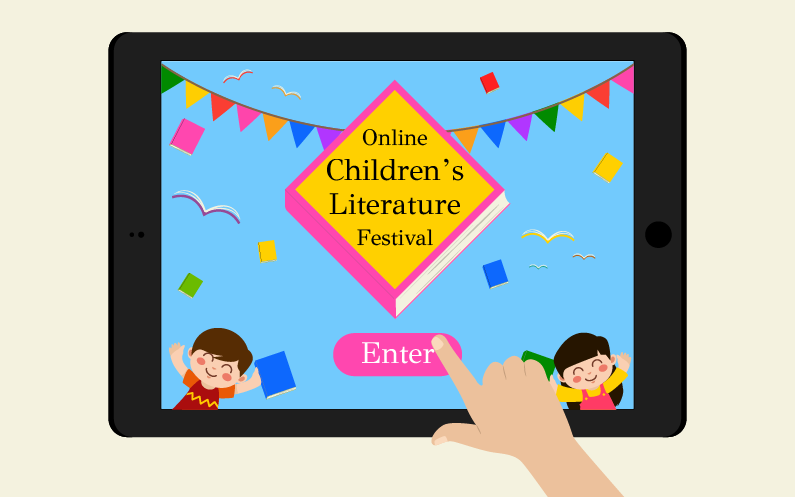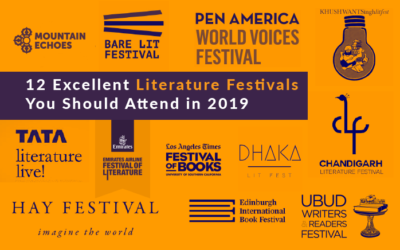The Way Forward For Children’s Literature Festivals
In March 2020, at the height of the pandemic in Europe, the major children’s literary events like the Bologna Children’s Book Fair, the Bath Children’s Literature Festival, and the London Book Fair cancelled their 2020 festivals.
In India, the lockdown also had us debating about holding literature festivals. Would travel open up? Would public events be allowed? Would visitors come to events where social distancing might not always be possible? Even five months down the line, some of these questions remain unanswered. However, it is quite clear that this year may well be written off as far as brick-and-mortar events are concerned.
Like work, school and play, children’s literature festivals across the world have adopted a digital avatar in one form or the other. Several months since, the question is, how successful has the transition been?
International Children’s Literature Festivals
On the international front, festivals have already adapted to the digital space. Most major festivals rose to the occasion with aplomb. On the Bologna Children’s Book Fair website, the galleries feature exhibitions of books and sumptuous illustrations as well unique collaborations with artists around the world. For the first time, this is available to parents and children and not just those in the trade.
The Bath Children’s Literature Festival will launch the Reading Is Magic Festival, a collaboration of six festivals from the U.K. and Canada. This festival will feature some of the best children’s writers in the U.K., Canada and the U.S. from September 27 – October 2. The Edinburgh Book Festival (August 15 – August 31) includes online sessions with best-selling authors like Julia Donaldson, Eoin Colfer, illustrator Dapo Adeola and Cressida Cowell. The Brooklyn Book Festival, which includes a Children’s Day as part of the festival will go online in an ‘All-Virtual’ 15th anniversary celebration from September 28 – October 5.
Streaming events on the festival websites, Zoom sessions, Facebook and Instagram live events, films and interactive multimedia, live Q&A – all this and more are part of the online package. Most events are free, and since the Internet has no borders, these festivals have global audiences and access to talent from around the world.
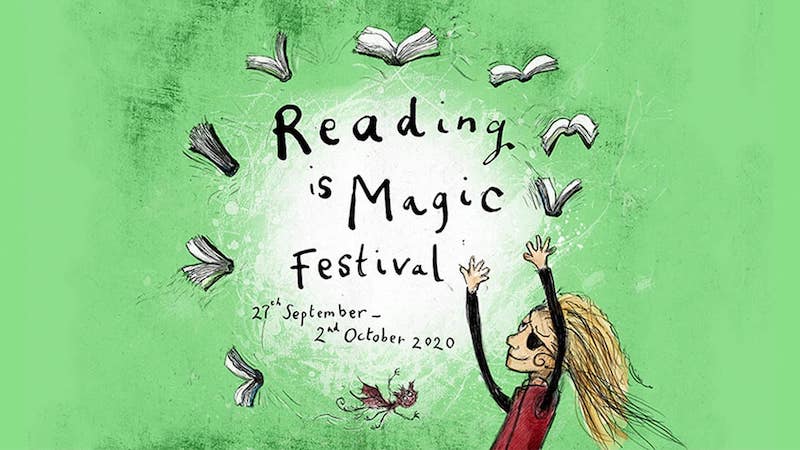
(Image via Fun Kids Live)
Can We Do The Same In India?
Today, there are more than a dozen festivals across the country celebrating children’s books – from the country’s oldest children’s literature festival Bookaroo to festivals like the Kala Ghoda Arts Festival, Neev Literature Festival, Bangalore Literature Festival, Kitaabo and, my own festival, Peek A Book in Mumbai.
Most of these festivals are on wait-and-watch mode when it comes to physical events. Given the ever-increasing COVID-19 cases, uncertainties over travel, and concerns over public safety, it is still difficult to say if physical festivals can be held. ‘Will we hold the November festival? This is the million-dollar question,’ says Venkatesh M Swamy, co-founder of the Bookaroo Literature Festival. However, he adds, that if the vaccine becomes a reality, they may look at pushing the festival dates back. Others like Preeti Gill, founder and managing trustee, Majha House, a cultural space in Amritsar, are quite clear that 2020 is ‘a complete washout as far as physical festivals and activities are concerned’.
In response, a few of these have taken to the digital space with their own unique approach. Bookaroo launched LitHouse featuring workshops in the writing and art spaces. Swamy says that they have held 45 plus sessions across genres and ages so far. Neev Literature Festival launched Imaginary Lines, a year-long online literature festival. The first round of sessions used books to launch a discussion on ‘borders’. Majha House has an increasingly popular virtual Book Room on Saturdays. ‘We regularly have kids from the U.K., Canada and even China join in. We are able to invite authors from across the world to interact with the kids – this would have been tough in pre-Corona times because of the sheer cost of flying authors in,’ says Gill.
At Peek A Book, we have used the digital space to promote child-driven content, offering our online platforms to showcase the work of children. Our most recent campaign, Coronials, created with the First Moms Club, is a series of e-magazines that document children’s writing and art about the lockdown and pandemic.
However, going digital has its own set of challenges.
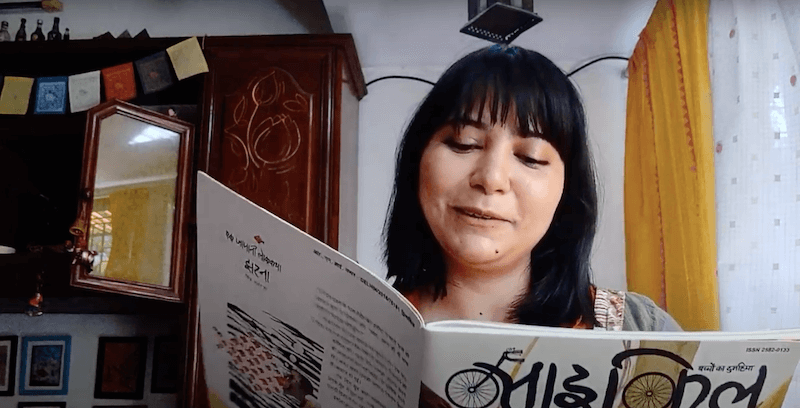
(Image via YouTube)
Not So Digi-Ready After All
First off, when the lockdown came into effect across the world, everyone pitched in to keep children occupied through the difficult days of social isolation. Celebrities from Michelle Obama to Kate Winslet read stories for children. In India, online platforms like Momspresso and publishers did free book readings; children’s authors collectively participated in #thodareadingcorona and other weekly storytelling sessions. The online space was flooded with activities for children, most of it free. So, for festivals wanting to go online, the offerings have to be very unique to compete with this.
Second, in the past three months, so much of the activity has moved online that there is not just a concern about children spending too much time with screens but also a general screen fatigue leading to a drop in online participation. Says Swamy, ‘People are a little tired of the screen time their children are engaged in since April. School work takes a major chunk of online time. Then there are entertainment options, whether it is TV or games. Finally, it is a screen, only the sizes differ.’
Third, at the best of times, children’s literature festivals have budget constraints. To create a significant online presence, there has to be a substantial investment in technology and in programming since the digital space demands enormous amounts of content. So, literature festivals have to decide if their digital presence post-pandemic is going to be significant enough to make that investment.
Fourth, literature festivals are important for book sales, especially for children who love getting their books signed by authors. Authors conducting sessions want their books available for sale during the festival. Festivals have to find online bookstore partners who can sell books as part of the digital festival.
Finally, and most importantly, a literature festival is all about the joy of meeting an author in person. Obviously, the digital interaction may not be as satisfying. Says Sohini Mitra, Publisher, Children and YA at Penguin Random House India, ‘In the absence of physical events and festivals, the human touch goes away. Most festivals are planning to go online and under the circumstances it’s the best thing. However, a physical event will always be a more wholesome experience.’
Author Shabnam Minwalla agrees, ‘For children, lit fests are not just about sessions but about little conversations. Kids love showing us a poem they might have written; they love telling us about their teachers, etc. All that is not possible (in a digital fest).’
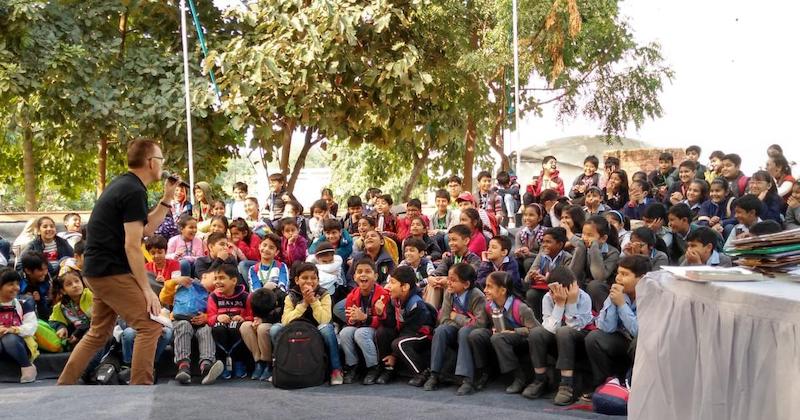
(Image via Scroll)
The Way Forward For Children’s Literature Festivals
The growing number of children’s literature festivals have given writers and publishers the opportunity to interact meaningfully with their audiences. Mitra believes that, ‘Lit fests have… provided a wonderful opportunity for discoverability of new books being published in the subcontinent.’ Literature festivals are important for authors in other ways too, says Minwalla. ‘They allow us to meet our readers. And it is these interactions that give our writing direction.’
So, where do we go from here? At the moment, digitisation hasn’t caught on significantly in India, although there is a whole lot of one-off digital content for children online. Most curators also swear by the personal interaction format of a physical literature festival. As Swamy says, ‘Rethinking a seamless children-meet-author-meet-book formula of a physical festival is a tough one.’
That said, digital expansion offers immense opportunities. Post-pandemic, I think the best kind of festivals will be those that embrace technology to create unique offerings that can complement instead of substituting physical events. Says Gill, ‘The physical space where we can sit together and be enthralled will return to us, stronger than ever, since we will value the space more. But I also think and, it is in the fitness of things, that the online space must also stay. It is an additional space that should be used in tandem with the physical space and both can work very well together.’
Amen to that, I say.
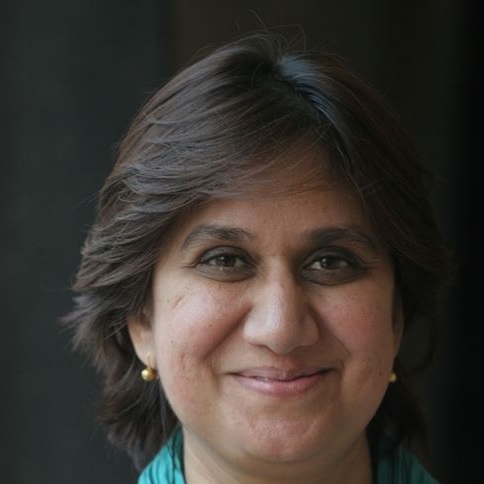
Read her articles here.

